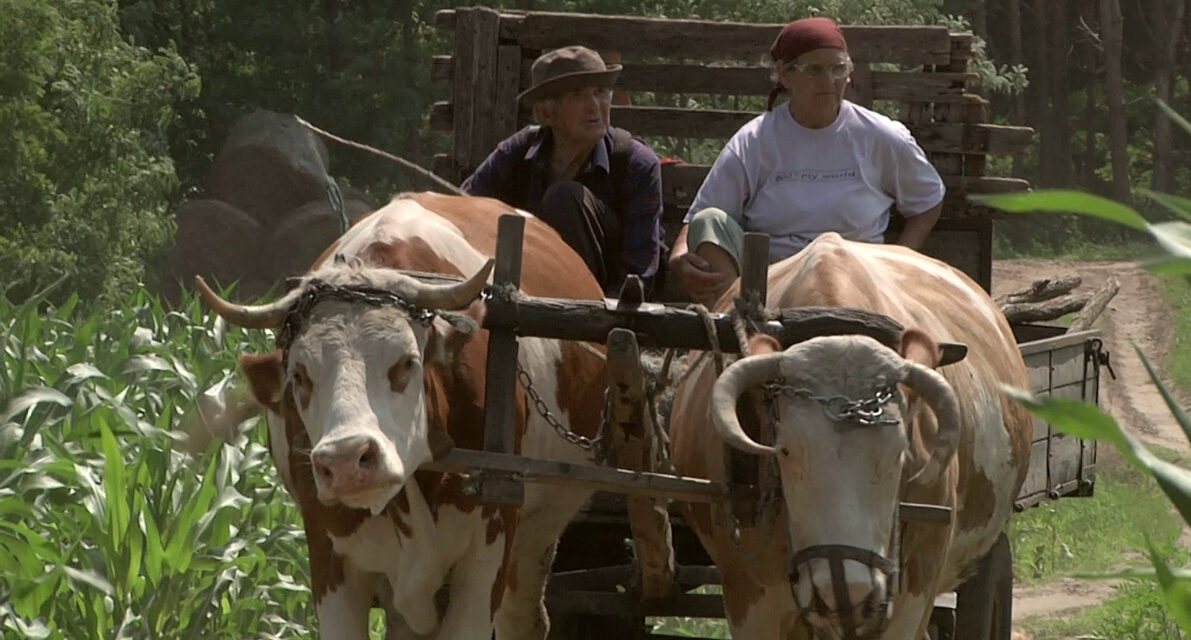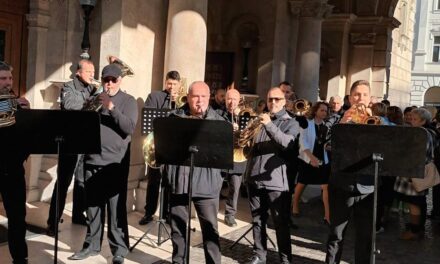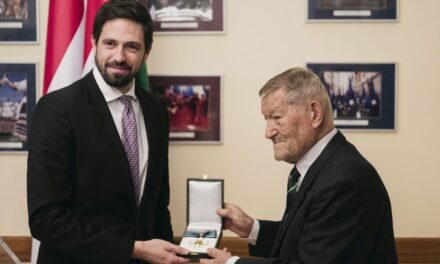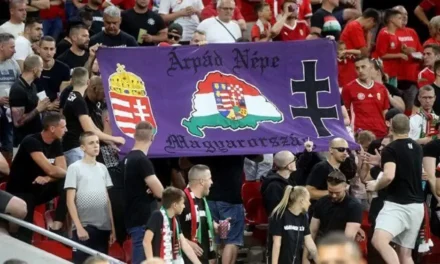Károly Kondás, a farmer from Penéslek, is the last yoked cow in the country. He and his wife were tired of the monotonous work around the animals, and of the daily training of themselves. But then who continues this ancient craft?
Do our children and grandchildren still see the cow cart on the road? Zsigmond Dezső 's new documentary entitled Igaban
An old man with a bent back, barely able to walk, of an indeterminable age appears on the canvas. The recording could have been made many decades or even centuries ago: the cows are galloping nicely in front of the cart in a common rhythm, they are not in a hurry, just like their owner sitting on the goat. Why would I, work awaits
more precisely, there is nothing but unceasing work;
to feed, to water, to raise, to cut, to sow, to harvest, to produce, to sell, to try to grow slowly with little money, until suddenly life passes unnoticed.
Just as Károly Kondás, the last Hungarian yoked cow, is not passing away. The old man from Penéslek was found by director Dezső Zsigmond in the last minute of the twenty-fourth hour, during the filming of his previous film (A Sátán fattya), so that they, along with others, along with cameraman Tibor Becse, who did fantastic work, followed his everyday life on camera for three years. But not only his - although Uncle Károly is undoubtedly the main character - but also that of András Szabó, the owner of the White Colony farmyard, and his partner, Melinda, who is trying to save his wife and the inheritance at least in traces.
The ambiguous title Igaban, This is precisely the greatest virtue of Dezső Zsigmond's documentary,
that every minute we see the hard reality instead of the romanticism of rural life imagined from big cities.
This is especially evident in flashbacks. Uncle Károly, who was born into a family of servants, who already grazed other people's cows when he was seven or eight years old and warmed his feet by standing in the fresh cow pie for lack of shoes, had only one wish to one day become his own master and cow-cow. The fact that it was successful, and that a house and a small farm were also built next to it, of course came at a price. The words of his wife, Marika, attest to this: in the "marriage concluded without love" an unimaginable physical and mental burden fell on him and continues to this day.
Behind his objective and very precise complaints lies a special tragedy: that of a wasted life.
His partner is Melinda, who returned to her roots voluntarily and out of love, so that together with András, under more comfortable conditions, but with no less effort, they could re-teach the people in the area about a natural way of life that was not so long ago and a healthy love and respect for animals.
Because in spite of all the trouble, grumbling and unceasing duty, there are moments that shine, for example, during the birth of a calf broadcast on the premiere plan.
Uncle Károly's healthy humor and simple truths of life - we heard quite a few of the latter live at the recent screening at the Museum of Ethnography - are also good; and the almost burlesque-like scene with the loose cows at the Szabós' could easily fit into a beautifully composed feature film.
Just like the sequences of images taken in the White Colony, when the animals that always go right on their usual route refuse to go left, so the "sightseeing cart" full of children circulates around the settlement. At the same time, the last minutes of the Igá are heart-wrenching: the old man slowly pushing his wheelbarrow to an ancient rhythm in the winter landscape
"After more than three and a half decades in Szatmár, I can perhaps say that I no longer feel like a stranger, but a bit like I belong here. It is not the fact that I have a small farmhouse, or even houses in the area, that entitles me to this, but rather the fact that, as a spiritual homeowner, I am almost always here, even if I am physically somewhere else."a poignant symbol of the artificially accelerated disappearance of an entire culture.
- said Dezső Zsigmond when receiving the Kölcsey Memorial Plaque back in 2019. He more than proved all of this with this film. As well as the fact that we do need these kinds of micro-stories. Not - or not only - so that future ethnographers have something to research. But also to see how our world today, which offers more and more opportunities, will become even narrower in the absence of Uncle Károly and Aunt Marika.
Featured image: Zsigmond Dezső / Facebook













